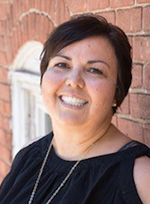By Christina Bach, MBE, LCSW, OSW-C, FAOSW
and
Aimee Hoch, MSW, LSW, OSW-C
Financial toxicity is of paramount interest in oncology care in the U.S. As profits for insurers, health systems and pharmaceutical companies have increased, so has the burden of cost sharing, underinsurance and inflation for cancer survivors. While the Affordable Care Act aimed to control costs and provide access to insurance for more individuals, it also amplified the crisis of loss of income, high deductibles, copays and coinsurances, and the cost of oral oncology treatments to cancer patients and their families.
Addressing financial toxicity is a health equity issue that is aligned with the social work core value of social justice. Oncology social work financial navigators (OSWFN) are uniquely positioned to assess, intervene, evaluate and advocate for changes at micro, mezzo and macro levels. Yet very few of us actually embrace this important function and role in care for the whole patient.
OSWFNs establish relationships and trust with clients (another core value). When addressing often taboo or difficult subjects, we have great ability to exercise empathy and sensitivity without judgment. We bring a whole-person, trauma-informed approach to address inequity. Prior experiences, especially during childhood with poverty and lack of resources, often sets the stage for coping with financial challenges faced in adulthood.
We receive training in public benefits, programs and policies that impact our clients. These include SSI/SSDI, Medicare/Medicare, SNAP, FMLA, COBRA, ADA accommodations, Affordable Care Act, and most recently the Inflation Reduction Act and the ending of the COVID-19 public health emergency and its impact on Medicaid recipients.
We are resourceful. We maintain a vast knowledge of local, regional and national financial support resources that our clients can access. These include nonprofit grant funding/foundations, copay assistance, pharmaceutical assistance programs (PAPs), insurance premium assistance, and emergency financial support for practical, day-to-day expenses like transportation, lodging, food, child/elder/pet care, housing and utilities.
From diagnosis, through treatment and into survivorship, OSWFNs focus on healing financial toxicity while avoiding a band-aid, in-the-moment approach. This is a parallel process to treating the cancer. Care is individualized, focused on all out-of-pocket needs (not just medical), and structured towards true change for long-term financial health. We do this through validating the problem, normalizing the experience, linking with resources, insurance optimization, and ongoing navigation efforts as patient’s insurance and health status change.
Case Example
Suzy was diagnosed with lung cancer at the age of 55. She was working at the time of diagnosis but needed to stop working to undergo treatment. She is married, with adult children. Her husband also developed health problems and was on disability.
She is referred to the OSWFN for assistance with maintaining her insurance coverage. Upon assessment, the OSWFN also identified that loss of/change of household income could have a profound effect on Suzy’s options to maintain her health insurance and ultimately her ability to access care.
With the help of the OSWFN, she was able to access COBRA with premium assistance provided through a third-party foundation. However, the OSWFN knew that this premium assistance was time limited. She identified the need for longer-term options for maintaining health insurance. She then educated the patient through purchasing a plan through the Healthcare Marketplace as well as accessing a copay card from the manufacturer.
This intervention guaranteed full coverage and access to care for another year.
The OSWFN also provided education and support in applying for SSDI and two years into her disability, transitioning her coverage again to Medicare. This case demonstrates the need for flexibility, creativity and proactive interventions throughout a multi-year treatment plan.
Ultimately, these interventions lowered Suzy’s distress levels and kept her in care without interruption.
A Model of OSWFN
The Cancer Support Community Helpline (CSC-HL) has embraced the role of the OSWFN in its specialist services. As consultants, we receive referrals from community navigators and resource specialists from the csc-hl when financial needs are identified. The OSWFN then provides personalized financial navigation services. We provide services on an ongoing basis to provide continuity and manage changes that patients may experience at various times during their cancer experience. The CSC-HL has embraced the specialized training of the OSWFN in its approach to addressing financial toxicity.
These unique characteristics validate the connection between financial navigation and social work. All of these interventions improve access to care, adherence and potentially patient outcomes. We invite OSWs to embrace their skillset and consider the importance of addressing financial toxicity as part of psychosocial oncology best practices.


